1. Early Life and Education
Pridi Banomyong's early life and educational pursuits laid the groundwork for his eventual contributions to Thai society, marked by his family's humble origins, a rigorous legal education, and exposure to European political thought.
1.1. Ancestry and Family Background
Pridi Banomyong's ancestry has roots in Guangdong Province, southern China. His great-great-great-grandfather, Heng, emigrated from Etang Village in Chenghai District to Siam during the reign of King Boromaracha V (1758-1767), leaving a pregnant wife in China. Heng served as a mercenary under King Taksin and fought against Burmese invaders in 1767, eventually dying in service. King Taksin compensated Heng's family after they inquired about his fate. Heng's son, Seng, chose to live his life in China as a rice farmer.
However, Seng's son, Tan Nai Kok (陳盛于Chen ChengyuChinese), born in Chenghai, emigrated to Siam in 1814 during the reign of King Rama II. Nai Kok settled in Ayutthaya and earned a living by selling a fusion of Chinese and Thai sweets. A devout Buddhist, Nai Kok married a Thai woman named Pin, whose sister, Boonma, would later become an ancestor of Pridi's wife, Poonsuk Banomyong. Their son, Nai Koet, married Khum, the daughter of a wealthy Chinese entrepreneur. Upon Nai Koet's death, his wife arranged for his cremation and interment at a shrine on Phanomyong Hill, which became the origin of their Thai surname, "Phanomyong". Their son, Nai Siang, became a wealthy rice merchant and married Lukchan; they were Pridi's parents. In 1915, following a royal decree by King Vajiravudh, Pridi and his family dropped "Nai" from their names.
1.2. Childhood and Education
Pridi Phanomyong was born on 11 May 1900, in Tha Wasukri, Ayutthaya Province, the second of five children born to his father's primary wife, with two additional half-siblings from his father's minor wife. Growing up in a farming family, he gained an understanding of the hardships faced by farmers and the exploitation by feudal landowners. This personal experience became a strong motivation for his later ambition to transform Thailand's social, economic, and political landscape. His interest in politics began at age 11, influenced by events like the Xinhai Revolution in China led by Sun Yat-sen and the Palace Revolt of 1912 in Siam, where he sympathized with those punished.
Despite his rural background, Pridi's father emphasized education. Pridi began his schooling at home with teacher Saeng in Tha Wasukri, then attended Wat Salapoon School for primary education in Krung Kao District. He continued his secondary education at Wat Benchamabophit Secondary School, followed by Ayutthaya Wittayalai School, where he completed the highest level for provincial schools. In 1917, at age 17, he transferred to Suankularb Wittayalai School and began studying at the Law School of the Siamese Ministry of Justice, alongside French language studies at the Barrister-at-Law Association. He was particularly impressed by Laydeker, a French advisor to the Ministry of Justice. Pridi earned his barrister qualification at the remarkably young age of 19 in 1919. He once served as a defense lawyer in a single case, successfully arguing that the defendant's damage to royal property was an act of "force majeure". After this, he worked as a clerk for the Department of Corrections, supported by its Director-General, Phraya Chaiwichitwisitthammada, whom Pridi credited for teaching him about public administration.
In 1920, Pridi was awarded a scholarship from the Ministry of Justice to pursue further legal studies in France. He spent a year preparing, studying French, Latin, and English, before enrolling at the University of Caen, where he obtained a bachelor's degree (bachelier en droit) and a licentiate degree (licencié en droit) in law. The French licentiate curriculum covered various fields, including justice, courts, interior affairs, finance, and foreign affairs. In 1926, he completed his doctorate in law (docteur en droit) at the University of Paris's Faculty of Law, with a dissertation titled "On the Fate of Personal Companies in the Event of an Associate's Death (A Study of French and Comparative Law)," dedicated to Laydeker. He was the first Thai to receive a state doctorate in law (doctorat d'état) in legal sciences. Additionally, he earned a higher diploma in political economy.
In 1924, Pridi founded the "Samakkhiyanukhro Association" (Thai Students Association) in Paris and was elected its president. However, he came into conflict with Prince Charunsak Kritakorn, the Siamese Minister to Paris, by defying an order prohibiting the association from sending representatives to the United Kingdom in 1926. Pridi openly admitted that he intended to stir political consciousness among students to prepare for future political change. The association also drafted a petition seeking salary increases for students due to the strong Thai baht against the French franc, which further angered the Minister. Prince Charunsak reported Pridi to the King, accusing him of being a threat to the throne. King Prajadhipok considered Pridi's actions "arrogant" but not a direct threat to the monarchy and dissolved the association. However, Pridi's father submitted a petition requesting that Pridi be allowed to complete his doctorate before being recalled, and the Ministry of Justice vouched for him. Pridi was also scrutinized for meeting a representative from the Republic of China for unknown reasons.
1.3. Early Legal Career
After returning to Phra Nakhon in April 1927, Pridi began his career as a judge in the Ministry of Justice. He was quickly promoted to Assistant Secretary of the Law Drafting Department, which later became the Office of the Council of State. In 1928, at the age of 28, he was granted the noble title Ammattri Luang Praditmanutham (อำมาตย์ตรี หลวงประดิษฐ์มนูธรรมAmmattri Luang PraditmanuthamThai), a title he resigned in 1941.
Pridi played a significant role in drafting legal codes and served as a legal advisor to the state. He also functioned as an administrative court judge, arbitrating disputes between civil servants and citizens. In 1932, he was appointed to the Law Drafting Committee. During this time, he compiled all Thai laws, from the Law of the Three Seals up to that point, into a single volume titled Collection of Thai Laws, which he published in 1930 through his private printing house, Nitisarn Printing House. This book became very popular and highly profitable for him.
Beyond his work in the Law Drafting Department, Pridi was a professor at the Ministry of Justice Law School. Initially, he taught Civil and Commercial Law, focusing on partnerships, companies, and associations. Later, he taught International Private Law. In 1931, Pridi became the first person to teach Administrative Law (Droit Administratif) in Thailand. This course brought him considerable fame, as its content, rooted in public law, explained the separation of sovereign powers, which directly challenged the principles of absolute monarchy. His lectures inspired students to engage in state affairs and aspire to self-governance. His syllabus included constitutional principles, the development of Siamese public administration, and fundamental political economy and public finance. His book on Administrative Law became a crucial tool in mobilizing support for the 1932 Siamese Revolution.
He also proposed transforming the Law Drafting Department into an independent Council of State, accountable to the parliament, which would draft laws and serve as the state's legal advisor and an administrative court. However, this effort faced constant obstacles due to opposition from traditionalist nobles who disagreed with the concept of citizens prosecuting civil servants. Additionally, he sought to make the State Audit Office independent, allowing it to scrutinize government spending without superior orders. He implemented reforms in governance mechanisms by introducing the Civil Service Act, the Judicial Service Act, and the National Defense Organization Act. Furthermore, he developed laws related to family, inheritance, civil and criminal procedure, and the Justice Court Organization Act, which facilitated the promulgation of new legal codes and his successful negotiation to revise unequal treaties with foreign powers.
2. Political Career
Pridi Banomyong's political career was defined by his unwavering commitment to transforming Thailand into a democratic and socially just nation, navigating revolutionary change, ministerial responsibilities, wartime leadership, and the challenges of post-war governance.
2.1. Role in the 1932 Siamese Revolution
Pridi Banomyong was a central figure in the planning and execution of the 1932 Siamese Revolution. While studying in France, he began discussing political change with Prayoon Phamornmontri in August 1924. In February 1927, he co-founded the Khana Ratsadon (People's Party) at 5 Rue du Sommerard in Paris, along with five other like-minded individuals, including Plaek Phibunsongkhram, Thasanai Mitphakdi, Tua Laphanukrom, Charun Singhaseni, and Naep Phaholyothin. The party committed to a six-point agenda for Siam's future. Pridi was specifically tasked with drafting the policies and plans to be implemented after the change in government.
Upon his return to Siam, Pridi, as a law professor, attracted many students who admired his democratic and socialist ideals, including Sangwan Tularak and Direk Jayanama, who joined the movement. Other key figures like Prajuab Bunnag, Charun Suebsaeng, and Wilas Osathanon also aligned with his vision. During a Khana Ratsadon meeting, Pridi presented his cooperative economic plan, which was unanimously approved, giving him the mandate to implement it. To avoid bloodshed, a lesson drawn from the French Revolution and the October Revolution in Russia, Pridi proposed taking high-ranking royals and government members hostage.
On 24 June 1932, the Khana Ratsadon, with Pridi leading its civilian faction, successfully executed a swift and bloodless coup, ending 150 years of absolute monarchy under the Chakri dynasty. Following the revolution, Pridi organized a crucial meeting between the Khana Ratsadon and high-ranking officials at the Ananta Samakhom Throne Hall in Dusit Palace, where he clarified the new regime's objectives and fundamental principles, and sought their cooperation in governance.
Pridi was instrumental in shaping the new democratic system. He drafted the provisional Siamese Constitution Act of 1932 and the first permanent constitution, the Constitution of the Kingdom of Siam of 1932, promulgated on 10 December 1932. He successfully addressed King Prajadhipok's concerns regarding the latter, making it acceptable to the monarch. He was also appointed as the first Secretary-General of the House of Representatives, where he played a key legislative role in establishing principles of rights, freedoms, and equality for citizens, pioneering the first election law and universal suffrage.
2.2. Early Government Positions and Reforms
Pridi served as a member of the People's Committee of Siam and as a minister without portfolio in the government of Phraya Manopakorn Nititada, Thailand's first prime minister. Phraya Manopakorn frequently viewed Pridi as the government's orchestrator and parliamentary whip. During the drafting of the first permanent constitution, Pridi and Phraya Manopakorn were at odds, as the latter sought a constitution similar to the Meiji Constitution, which granted extensive powers to the monarch.
Pridi promptly proposed several tax reforms, including abolishing the salt field tax and property tax, adjusting taxes on banking and insurance, reducing land and house taxes, and abolishing or reducing fees for garden plots and rice fields. He also introduced an act protecting farmers' essential assets from seizure by creditors. The government passed numerous laws, such as the Usury Prohibition Act, the Employment Agency Act, and a progressive Income Tax Act.
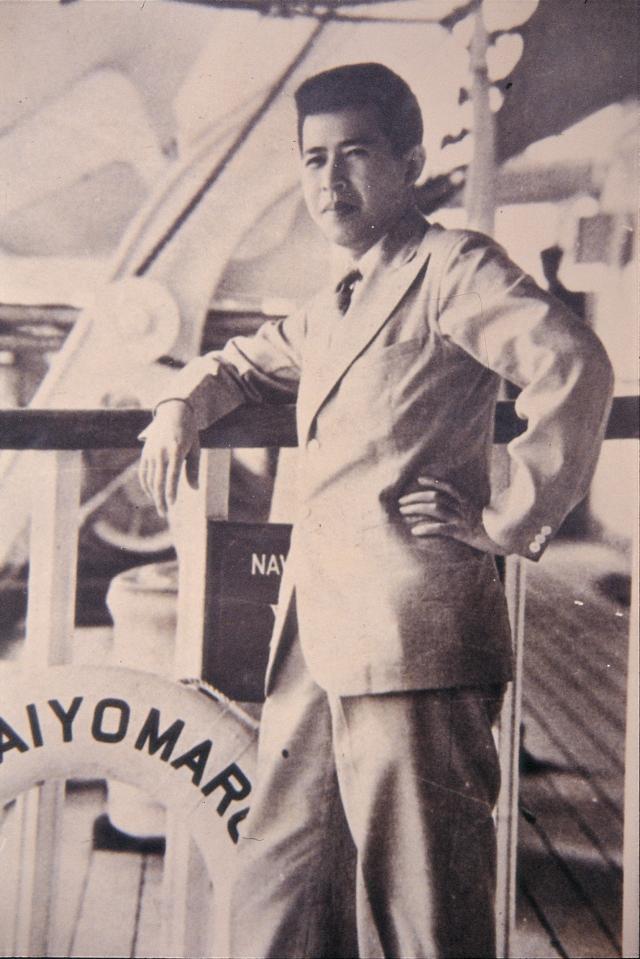
In 1933, Pridi proposed his radical economic plan, known as the "Yellow Cover Dossier" or the "Act on Guaranteeing the People's Well-being." This plan envisioned a state-managed cooperative economy, including the nationalization of land and labor, the allocation of unused land for agriculture, and equitable profit sharing, with a focus on social security. He believed his ideas, influenced by fraternalism (solidarism) which blended socialism with Rousseau-style liberalism, were best suited for Siam. Although many committee members, including Prince Vallabhakara Varavarna, supported the plan, it faced intense opposition from conservative and royalist groups, who denounced it as communist. King Prajadhipok also opposed it due to concerns over land redistribution, and Phraya Manopakorn used the King's disapproval to reject the plan.
The controversy led to a political crisis, resulting in the April 1933 Siamese coup d'état, the dissolution of parliament, and the suspension of parts of the constitution. Phraya Manopakorn publicly accused Pridi of having communist leanings. The public backlash, including a run on banks, prompted Pridi to temporarily leave the country on 12 April 1933, to alleviate tensions. The government paid him an allowance of 1.00 K GBP per year. Before his departure, the Ministry of Foreign Affairs issued him a document stating he was traveling to "study other economic conditions." He departed from Trieste, Italy, on April 12, arriving in Singapore on April 15, where he was welcomed by a Thai resident. He then continued to Marseille, France, and finally to Paris, where he met with economists and politicians. The new government subsequently passed anti-communist legislation, which was widely seen as an attempt to prevent Pridi's return.
Following the June 1933 Siamese coup d'état, which installed Phraya Phahonphonphayuhasena as prime minister, Pridi was recalled to Siam in September 1933. He arrived on September 29, welcomed by Thawi Bunyaket, the Cabinet Secretary-General.
2.2.1. Minister of Interior
On 1 October 1933, Pridi was appointed Minister without portfolio. Despite ongoing animosity from the old power structure, which ignited the Bovoradej Rebellion, opposition to Pridi waned after Prince Bovoradej's defeat. When Phraya Phahon sought King Prajadhipok's approval for Pridi to be appointed Minister of Interior, the King responded, "Minister of Interior is not an issue, but Minister of Education is." Initially, Pridi hesitated to accept the role due to lingering accusations of communism. On 25 December 1933, members of parliament initiated an inquiry into whether Pridi was a communist. Chaired by Prince Wan Waithayakon, the committee unanimously concluded that he was not. Cleared of the allegations, Pridi was officially appointed Minister of Interior on 24 March 1934.
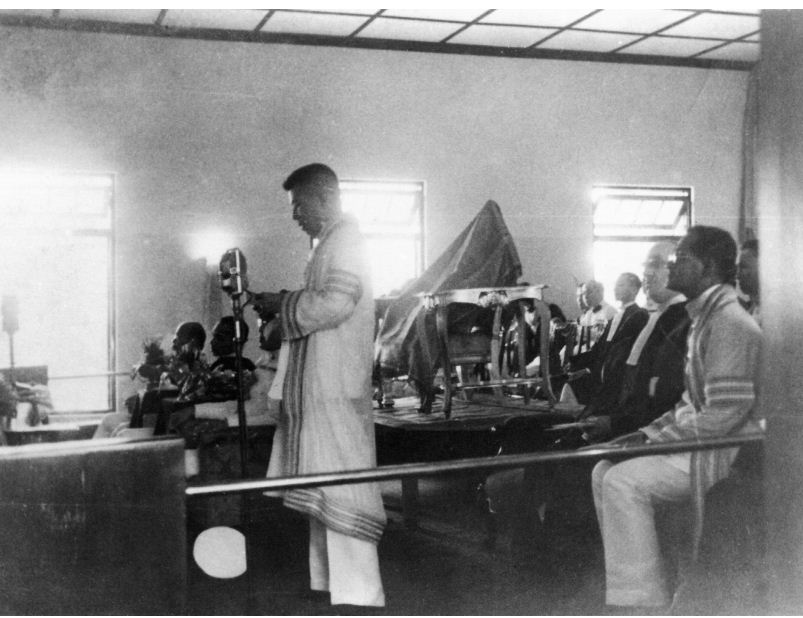
He played a crucial role in drafting the Act on Administrative Organization of Siam of 1933, which divided national administration into central, regional, and local levels to decentralize power in line with democratic principles. He also drafted the Municipal Organization Act of 1933, effectively establishing Thailand's municipal system. Due to his expertise in administrative structures, he advised and trained officials across all levels of the Ministry of Interior, from permanent secretaries to district chiefs. However, some of his proposals, such as appointing military officers as provincial governors and district chiefs in border areas (whereas Pridi preferred civilians), were blocked by fellow ministers. Pridi nearly left the country again to maintain unity within the government, but Phraya Phahon persuaded him to stay.
When King Prajadhipok abdicated in 1935, the government, with Pridi as a key figure, sought parliamentary approval to invite Prince Ananda Mahidol to ascend the throne. Pridi was also instrumental in selecting the Board of Regents for the young monarch.
2.2.2. Establishment of Thammasat University
At this time, Pridi believed that human development was more critical than economic plans. He recognized the need for civil servants to be knowledgeable in law, economics, political science, and related fields, collectively referred to as "ethics." Consequently, he established the University of Moral and Political Sciences (UMPS) on 27 June 1934. The university was formed by merging the Law School of the Ministry of Justice with the faculties of Law and Political Science from Chulalongkorn University. Pridi served as the "Praphasankarn" (Rector/Director-General) of UMPs from 1934 to 1947.
He envisioned UMPS as an open university, providing equal access to education for all citizens, aiming to foster democratic development and intellectual accessibility. The university's funding relied on student enrollment fees and the dividends from Asia Bank, which Pridi founded, with the university holding 80% of its shares. Pridi also donated his Nitisarn Printing House to the university for publishing textbooks. Following his political exile, the government later removed "Moral" and "Political" from the university's name, leaving only "Thammasat University," to discourage student involvement in politics. Additionally, the university's shares in Asia Bank were sold, rendering it financially dependent on state budgets. UMPs was later accused of serving as Pridi's power base, contrasting with Field Marshal Phibun's military support.
Pridi was also interested in establishing independent state organizations to protect citizens' interests. He proposed upgrading the Law Drafting Department to the Council of State, an independent body not under the Ministry of Justice, whose appointment would require parliamentary approval. This body would draft laws, serve as the state's legal advisor, and function as an administrative court, though this effort faced constant opposition. He also advocated for reforming the State Audit Office to allow it to scrutinize government spending without the need for superior orders. Furthermore, he reformed governance mechanisms by enacting the Civil Service Act, the Judicial Service Act, and the National Defense Organization Act. He also developed laws concerning family, inheritance, civil and criminal procedures, and the Justice Court Organization Act, which facilitated the implementation of new legal codes and the successful negotiation of unequal treaties with foreign countries.
One day, during a cabinet meeting, it was discovered that the previous absolute monarchy government had incurred foreign loans with extremely high interest rates. Pridi undertook negotiations to reduce these interest rates and foster diplomatic relations with foreign countries. In October 1936, he arrived in Trieste, Italy, where Prime Minister Benito Mussolini promised to revoke unfair treaties as quickly as possible. Negotiations with France, Germany, and the United Kingdom initially only yielded promises to consider revising unequal treaties, though Sir Samuel Hoare agreed to reduce loan interest from 6% to 4%, saving between 600.00 K THB and 700.00 K THB annually for 30 years. Parliament expressed its gratitude to Pridi for this achievement. He subsequently met with U.S. Secretary of State Cordell Hull in Washington, who pledged to abolish unequal treaties promptly. Finally, he met with Emperor Hirohito and the Prime Minister of Japan, rejecting the "yellow-white skin" policy but securing Japan's agreement to abolish unequal treaties.
2.2.3. Minister of Foreign Affairs
After organizing the Ministry of Interior, Pridi entrusted its duties to Rear Admiral Thawal Thamrongnawasawat. He then assumed the position of Minister of Foreign Affairs on 12 February 1936. Pridi's foreign policy was one of universal friendship, and he was determined to free Thailand from the obligations of unequal treaties. These treaties included extraterritorial rights for foreign consuls to withdraw cases until five years after the promulgation of legal codes, which compromised Thailand's judicial independence. They also imposed economic restrictions, such as prohibiting customs duties on certain goods, granting British and French nationality to those born in Thailand under their jurisdiction, and prohibiting customs duties on the Mekong River.
Pridi negotiated new treaties of Amity, Commerce, and Navigation, which concluded in November 1936. New treaties were signed in 1937 with Switzerland, Belgium, Sweden, Denmark, the United States, Norway, the United Kingdom, Italy, France (including the abolition of customs duties within 16 mile (25 km) of the border), Japan, and Germany. He successfully negotiated the abolition of extraterritorial rights. Regarding customs tariffs, Pridi began renegotiating treaties with the United States in 1920. While a maximum ceiling for customs duties was still imposed on Siam for ten years, new treaties in 1937-1938 granted Thailand full fiscal independence. His success in revising foreign treaties earned him the Dushdi Mala Medal for services to the nation. He also contributed to new border demarcations with Britain, resulting in Thailand gaining territory in the Mae Nam Lai area of Chiang Rai Province and the Pak Chan River basin in Ranong Province.
When Phraya Phahonphonphayuhasena resigned as Prime Minister in 1938 and declined to serve again, Khana Ratsadon nominated four individuals for the position, including Pridi. However, he lost to Plaek Phibunsongkhram. It is believed that this outcome was partly due to Pridi's progressive ideas and his perceived republican leanings, as well as the necessity for national defense preparations amidst the volatile global situation.
2.2.4. Minister of Finance

Pridi became Minister of Finance in 1938 and promptly implemented new customs tariffs following the successful renegotiation of the previous rates. He reduced or abolished customs duties on certain imports to promote agriculture, industry, medicine, science, and education. He also shifted export taxes to be based on value, accepting a reduction in export tax revenue to increase rice exports for farmers.
He reformed the tax system by eliminating regressive taxes, including the Ratchupakarn tax, rice field tax, garden tax, and taxes on sugarcane and tobacco, which would result in an annual deficit of approximately 12.00 M THB. To offset this, he increased revenue by making existing taxes fairer, such as income tax, business tax, bank tax, and stamp duty. He also introduced new taxes, including entertainment tax, local development contributions (paid to local authorities), and primary education contributions. These reforms culminated in the promulgation of the Revenue Code on 1 April 1939. As a result, government revenue increased by 25%, from 132.00 M THB in 1938 to 194.00 M THB in 1941.
To address the remaining deficit, Pridi increased customs duties on domestically produced goods to support local industries and raised excise taxes on alcohol. The state also monopolized the sale of opium, aiming to reduce consumption. He expanded irrigation projects to promote salt farming and encouraged government investment in these areas, guaranteeing the purchase of sea salt. He initiated the acquisition of the British American Tobacco company by the Department of Excise, leading to a state monopoly on tobacco, and the government also took ownership of liquor factories, such as Bang Yi Khan. Pridi's deep interest in tobacco led to a newspaper report humorously noting his experimentation with blending and smoking tobacco until he felt intoxicated. He also ordered an investigation into royal assets, which resulted in a civil lawsuit between the Bureau of the Royal Household and King Prajadhipok.
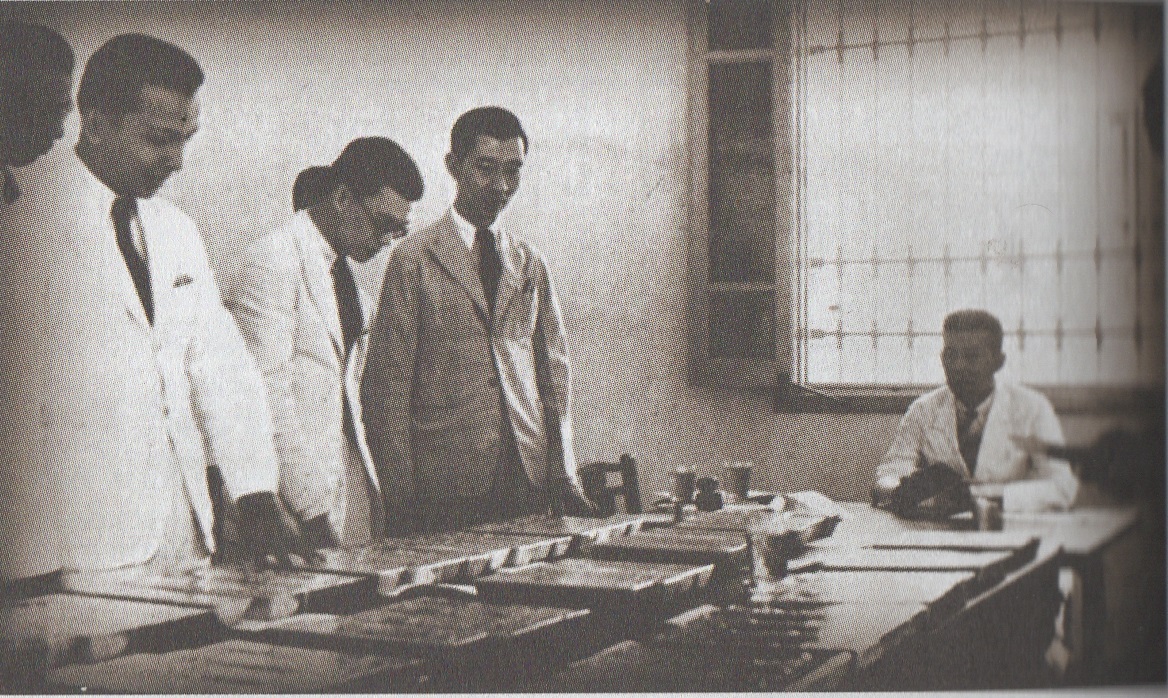
He then seriously revisited the establishment of a central or national bank, starting with the creation of the Thai National Bank Office, which initially operated as a commercial bank and focused on training staff. Subsequently, the Bank of Thailand was formally established in 1940, with the added function of issuing banknotes. Anticipating the outbreak of World War II, Pridi predicted a potential decline in the value of the Pound sterling, which Siam then used as its international reserve currency. He therefore converted sterling reserves into gold ingots for storage and also exchanged some for US dollars. This transaction yielded a profit of 5.05 M THB for the government and provided initial capital for the Thai National Bank Office, without requiring any government budget. Some of this gold was deposited abroad in the United Kingdom, the United States, and Japan, later serving as funds for the Free Thai Movement overseas. He also introduced a systematic national budget, subject to the approval of the House of Representatives.
During the Franco-Thai War in 1940, Pridi intended to reclaim French Indochina territory through legal means, but Prime Minister Phibun chose military force instead. Prior to the war, Pridi also obstructed a loan request from the Japanese government by imposing a condition that Japan repay in gold ingots, which greatly displeased Japan and led them to view Pridi as a major obstacle. Furthermore, he played a key role in the monastic governance reform by drafting the Sangha Act of 1941, which replaced the Sangha Act of 1902 and aimed to democratize the governance of the Sangha. However, this act was in effect for only 20 years before being replaced by a more authoritarian system.
His relationship with Field Marshal Plaek Phibunsongkhram, initially friendly, deteriorated significantly as Phibun began exhibiting dictatorial tendencies and pursued policies increasingly conciliatory towards Japan. Pridi, being both anti-Japanese and left-leaning, opposed many of Phibun's militaristic stances. This deepening animosity between the two leaders would largely shape Thailand's experience during World War II.
2.3. Leadership of the Free Thai Movement
On 8 December 1941, Imperial Japan launched attacks across Southeast Asia, including amphibious landings in Thailand and an invasion from French Indochina. Pridi and Direk Jayanama, the Foreign Minister at the time, were strong opponents of allowing Japanese troops to pass through Thailand and of forming an alliance with Japan. Pridi was subsequently removed from his position as Minister of Finance and appointed Regent for the young King Ananda Mahidol on 16 December 1941. This appointment, perceived as a powerless position, was influenced by personal conflicts between Pridi and Field Marshal Phibun, as well as Japanese pressure. Pridi, as Minister of Finance, had previously thwarted Japanese attempts to exchange yen for baht to fund their army and refused to grant them baht loans.
Shortly after Pridi's removal from the cabinet, the government signed a military alliance with Japan on 21 December. When the government declared war on the United Kingdom and the United States on 25 January 1942, Pridi, as one of the Regents, deliberately avoided co-signing the declaration, rendering it incomplete and legally invalid. During the war, Pridi ensured the safety of the royal family by arranging their relocation to Bang Pa-in Royal Palace.
In February 1943, Field Marshal Phibun, as Supreme Commander, ordered Pridi to report to the Supreme Command Headquarters as a legal expert. Pridi refused, citing the illegality of commanding a Regent, and was subsequently protected by the Royal Thai Navy. On 22 September 1943, Phibun launched an investigation into Pridi, accusing him of plotting to overthrow him as part of an anti-Japanese resistance. Pridi narrowly escaped these charges. Pridi was a key figure in pushing for Khuang Aphaiwong to become Prime Minister in 1944, after Phibun's government resigned following defeats on two significant bills. Pridi also appointed Phraya Phahonphonphayuhasena as Minister without Portfolio, Supreme Commander (replacing the abolished Supreme Commander position), and Army Commander, and designated Phibun as an advisor to the state to prevent a coup.
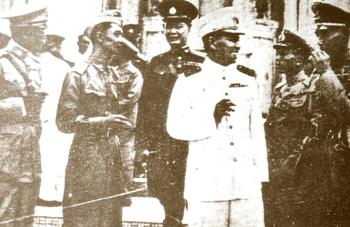
Pridi led the establishment of the domestic anti-Japanese underground organization, the Free Thai Movement ("Seri Thai"). Thawi Bunyaket recounted that Pridi contacted the Allies, sending agents abroad, and devised a plan for Thawi to be elected Speaker of the House and form a government-in-exile, but Phibun obstructed this. When the plan for a government-in-exile failed, they shifted to establishing the Free Thai Movement within Thailand. The OSS (U.S.) and Force 136 (U.K. intelligence in India) codenamed Pridi "Ruth." Both countries requested to send representatives to establish covert operations in Bangkok.
In May 1945, Pridi informed the Foreign Minister that Thailand would strategically withdraw from its agreements with Japan. Approximately 80,000 Free Thai members nationwide were ready to launch an open war against Japanese forces, but the Allies requested a delay. While the United Kingdom initially refused to guarantee Thailand's independence in negotiations, a date of 1 September 1945, was set for an armed uprising against Japanese troops in Thailand. However, Japan surrendered to the Allies on 15 August, before the planned uprising. When Lord Louis Mountbatten, the Supreme Commander, Southeast Asia Command, visited Bangkok in late 1945, he praised Pridi, noting the unique situation where "the Supreme Allied Commander was exchanging vital military plans with the Head of a State technically at war with us."
2.4. Post-War Premiership and Political Setbacks
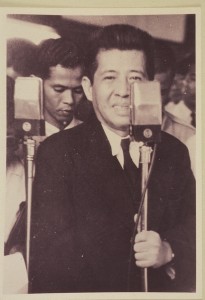
On 16 August 1945, Pridi, in his capacity as Regent, issued a "Peace Proclamation," declaring Thailand's 25 January 1942, declaration of war against the United States and the United Kingdom null and void. The proclamation affirmed Thailand's readiness to cooperate with the United Nations in establishing global peace. The Thai government subsequently declared August 16 as Thai Peace Day. After the Peace Proclamation, Pridi officially dissolved the Free Thai Movement.
When Japan surrendered, Chiang Kai-shek, the Generalissimo of China's Nationalist Government, demanded to disarm Japanese troops north of the 16th parallel (nearly half of Thailand). Pridi successfully appealed to U.S. President Harry S. Truman to stop this demand. The Allies requested Thailand to arrest identified war criminals for trial by the International Military Tribunal for the Far East in Japan. Field Marshal Phibun even wrote to Pridi seeking his help. Ultimately, through Pridi's negotiations, Thailand was allowed to establish its own war crimes law and court within the country. The Allies informed Pridi that Thailand would not be considered a defeated nation, would not be occupied, its government would not have to surrender, and its army would not be disarmed. They urged Thailand to promptly issue a statement rejecting its declaration of war against the Allies to invalidate all agreements Phibun's government had made with Japan.
With peace restored, Pridi invited King Ananda Mahidol to return to Thailand to personally administer the country. The King returned to Bangkok on 5 December 1945. King Ananda Mahidol expressed his gratitude to Pridi upon his return, stating, "I thank you very much for having performed your duties on my behalf with honesty and integrity towards me and the nation. I take this opportunity to express my goodwill for your good deeds in promoting the prosperity of the nation and helping to preserve the nation's independence." For his contributions in safeguarding the nation during a critical time, King Ananda Mahidol honored Pridi as a Senior Statesman (Ratthaburut Awuso) in the Royal Gazette on 8 December 1945. On 11 December 1945, he was further bestowed with the Order of the Nine Gems, the highest royal decoration for a commoner.
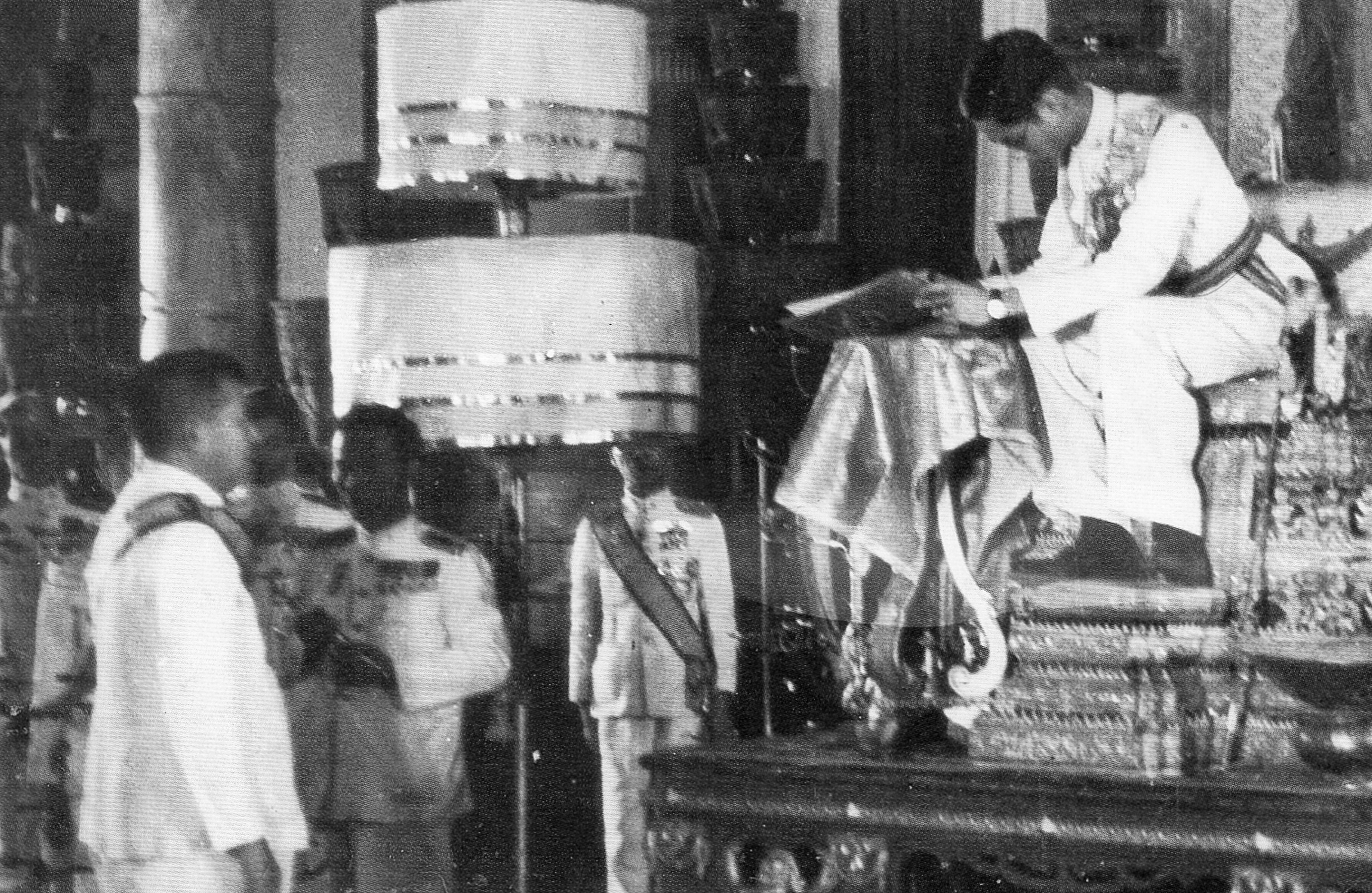
After the war, Pridi sought to maintain his power base by controlling the police, military police, and Free Thai members, leading the U.S. Embassy to criticize the Free Thai's weapons as his "private arsenal for a private army." In January 1946, following a new general election, Pridi, realizing that Khuang Aphaiwong's political views had diverged from the original revolutionaries, supported Direk Jayanama for prime minister. However, Khuang won, and his Democrat Party formed a short-lived government from January to March 1946. When Khuang's government resigned due to disagreement with a bill passed by parliament, the Sahaชีพ Party and the Constitutional Front Party supported Pridi for prime minister. He successfully renegotiated the Anglo-Thai Peace Treaty, changing the terms from providing free rice to the United Kingdom to requiring them to purchase Thai rice. He also founded the Damrong Rajanubhab Library. The Constitution of the Kingdom of Thailand of 1946, considered Thailand's most democratic due to both House of Representatives and Senate members being elected, was promulgated during his tenure. American diplomatic officials observed that his government's policies were "devoid of socialism," with only support for agricultural cooperatives and state enterprises.
On 9 June 1946, King Ananda Mahidol died from a gunshot wound. Pridi's government, which had just won an election under the new constitution, sought parliamentary approval to invite Prince Bhumibol Adulyadej to ascend the throne. After parliament's approval, Pridi resigned as prime minister on 11 June 1946, but the House of Representatives supported his retention of the position. He briefly served as a senator before resigning to run for the House of Representatives in Phra Nakhon Si Ayutthaya Province, where he was elected unopposed. Regarding the King's death, Sulak Sivaraksa wrote that Pridi "protected the misbehaving royals and did not allow the Director-General of the Police Department and the Minister of Interior to examine the royal corpse immediately, and arrested those who destroyed evidence."
The controversial death of King Ananda Mahidol was exploited by Pridi's political enemies, including the military faction of Field Marshal Phibun, who had lost power after World War II, and the opposition Democrat Party, as well as the old royalist establishment. They spread rumors through newspapers and in public places, even shouting "Pridi killed the King" in front of the Sala Chalermkrung Royal Theatre. This led to Pridi's resignation as prime minister in August 1946, after which Thawal Thamrongnawasawat was supported by Pridi's faction to become prime minister.
In early November 1946, after Pridi resigned as prime minister, he was invited by several governments to visit their countries. The Thai government, aware of this, appointed him a goodwill ambassador. He first visited China, then the Philippines, the United States, the United Kingdom, France, Switzerland, Denmark, Sweden, and Norway, totaling nine countries, returning to Bangkok on 20 February 1947. Thailand became the 55th member of the United Nations on 16 December 1946, largely due to Pridi's personal connections with French President Charles de Gaulle and Soviet leader Joseph Stalin, preventing their vetoes as permanent members of the UN Security Council.
Pridi also made recommendations for agricultural development to the government, such as promoting cotton breeding, mechanizing agriculture, reorganizing livestock farming and fishing industries, implementing public housing projects, creating public parks, and boosting international tourism. He proposed the construction of the Chao Phraya Dam in Chainat, which the government approved. In 1947, Pridi sought support from Western nations for his government, his companies, and the Chainat Dam. He was also the first Thai leader to request economic and military aid from the United States. He attempted to form a military alliance with the U.S. and sought military advisors to reform the Thai army, but the U.S. Congress did not approve. However, he maintained good relations with independence movements in Southeast Asia, particularly Vietnam, whose representatives expressed a desire to establish a Southeast Asian federation, believing Pridi would naturally lead it.
2.5. Exile and Later Years
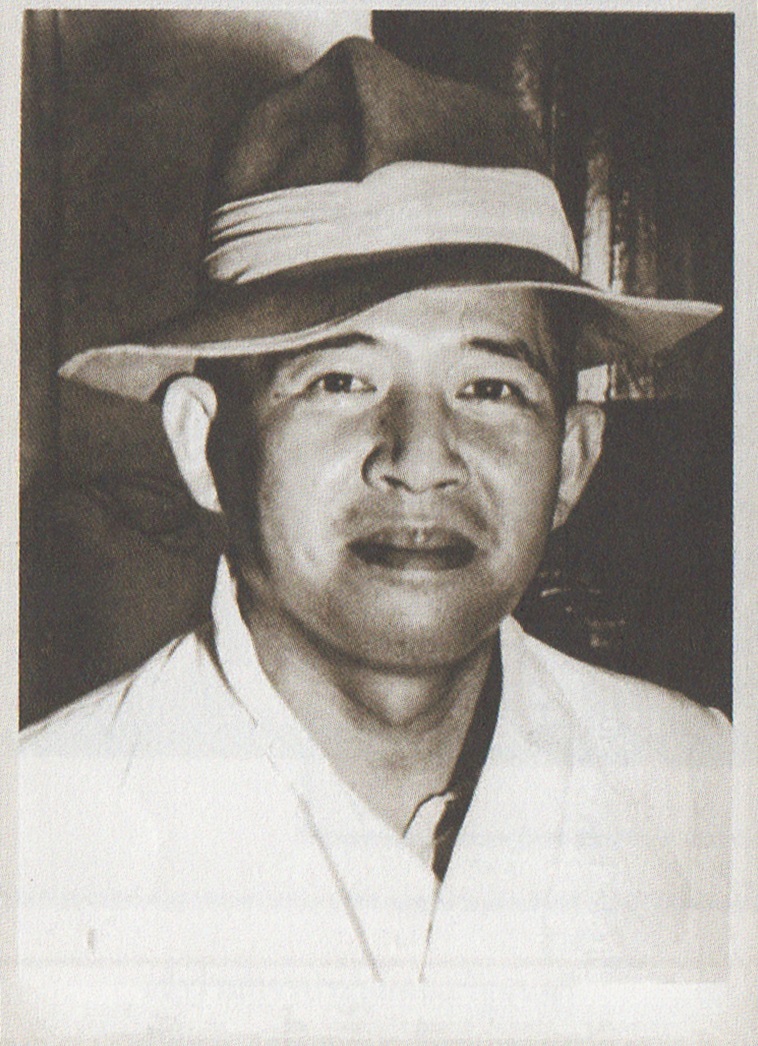
On 8 November 1947, the National Military Council, led by Lieutenant General Phin Choonhavan and effectively controlled by Field Marshal Phibun, staged a coup that overthrew the government of Rear Admiral Thawal Thamrongnawasawat. The coup plotters also resurrected severe accusations that Pridi had masterminded the assassination of King Ananda Mahidol. After seizing power, the coup forces stormed and fired upon Thachang Wang Na Palace, where Pridi and his family resided, intending to arrest him. However, he managed to escape under the protection of naval officers and sought refuge at the Sattahip Naval Base for a period. Concluding that he was not ready to resist the coup, he went into political exile with assistance from the British and American embassies, first to Singapore and then to the Republic of China by late May 1948. During this time, the Thai government issued an arrest warrant for Pridi in connection with the regicide case and requested his extradition from the United Kingdom, which was refused. The U.S. government, however, denied Pridi a travel visa, unwilling to upset Field Marshal Phibun.
After approximately seven months in exile in China, Pridi secretly returned to Thailand to direct the "26 February Democratic Movement," composed of naval officers and former Free Thai members, in an attempt to regain power on 26 February 1949. This attempt, known as the "Wang Luang Rebellion" (Palace Rebellion), failed. Following the event, Pridi secretly remained in Thailand for six months before escaping to Singapore on a small fishing boat, then traveling to Hong Kong. Pridi recounted that while changing ships to Qingdao, he was welcomed by the Chinese Communist Party as a political refugee and was invited to attend the founding ceremony of the People's Republic of China.
During his stay in China, Pridi was a guest of the Chinese government, which covered all his expenses. He was even offered Chinese support to initiate a communist civil war in Thailand to restore him to power, but he refused. While in China, Pridi met and exchanged views with Chinese party and government leaders, including Chairman Mao Zedong, Premier Zhou Enlai, and Deng Xiaoping. He was also invited to the funeral of Ho Chi Minh, the Vietnamese revolutionary leader, and met Souvanna Phouma, the Prime Minister of Laos. In 1956, Field Marshal Phibun and Police General Phao Siyanon attempted to persuade Pridi to return to Thailand to fight the regicide case, hoping to balance the power of Field Marshal Sarit Thanarat and the royalists. However, the U.S. government warned Phibun that this would cause unrest. In 1958, Pridi proposed the Kra Canal project to Field Marshal Thanom Kittikachorn's government.
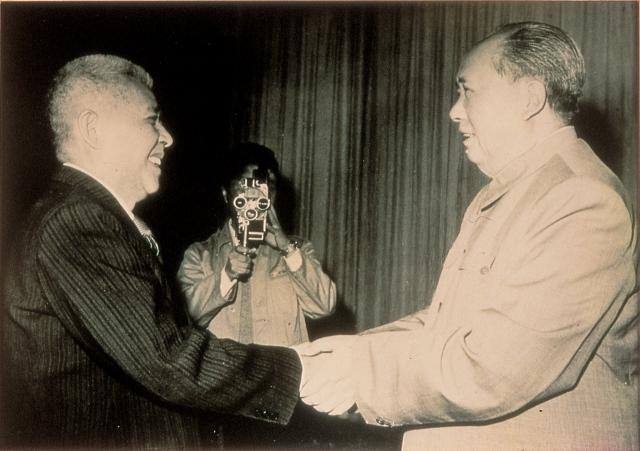
In early May 1970, Chinese Premier Zhou Enlai, aware of Pridi's desire to travel to Paris to be with his family, issued Pridi an alien passport to travel from China to Paris. He received assistance from Guillaume Georges-Picot, a former French Chargé d'affaires in Siam and an old friend. Pridi arrived in Paris on 8 November 1970, and resided in France thereafter. Shortly after his arrival, a dispute arose when the Thai government refused to issue him a certificate of existence and denied him his pension. Pridi filed a lawsuit and won both claims, receiving full official recognition as a Thai citizen under the law, his pension, and a Thai passport.
At approximately 11:00 AM on 2 May 1983, Pridi Banomyong passed away from a heart attack at his home in Antony, a suburb of Paris, while writing at his desk. His family arranged for his ashes to be returned to Thailand on 7 May 1986. On 8 May, King Bhumibol Adulyadej granted ten sets of monastic robes for the merit-making ceremony for Pridi's ashes, an act that could be interpreted as a gesture of respect or even a posthumous pardon.
3. Thought and Ideology
Pridi Banomyong's intellectual framework was rooted in a commitment to democratic governance, social justice, and economic equity, reflecting his social liberal perspectives.
3.1. Political and Economic Views
Early French intelligence reports in his youth characterized Pridi as a "hired agent of the Soviets" and a "communist disciple." However, after World War II, the U.S. War Department and the OSS described him as a "true democrat," a "liberal and idol of young Siamese intellectuals." American diplomatic delegations in 1945 assessed that while he might have had communist leanings in the past, he was then merely a "mild socialist."
Pridi's political vision centered on a constitutional monarchy that would empower the people. His economic plans, particularly the "Yellow Cover Dossier," were influenced by socialist principles, emphasizing social welfare and equity. He advocated for a planned economy, including the nationalization of land and labor, public employment, and social security. He believed in state-managed cooperatives and the equitable distribution of profits. He actively supported the Vietnamese independence movement led by Ho Chi Minh and envisioned the establishment of an anti-imperialist Southeast Asia League. His advocacy for these principles and a planned economy underscored his commitment to democratic principles and a more equitable society.
3.2. Philosophical and Religious Interests
Pridi Banomyong's intellectual and spiritual pursuits extended beyond politics and economics. He was interested in democratic ideas, influenced by his high school teachers, Thianwan and K.S.R. Kulab. He also held a deep interest in Buddhism. He was particularly moved by Buddhadasa Bhikkhu's book "Charter of Buddhist Companies," which he carried in his jacket pocket until his last moments.
During his exile in China, Pridi dedicated himself to extensive research and study, encompassing both theoretical and practical aspects of social sciences and philosophy. He delved into the works of prominent philosophers and social scientists such such as Marx, Engels, Lenin, Stalin, and Mao Zedong. He conducted comparative analyses of various facets of Thai society, including its economic and political systems, social perspectives, history, ethnicity, religions, customs, and traditions. These studies informed the articles and books he later published.
One of his most significant philosophical works, "The Impermanence of Society," frequently reprinted, analyzed the evolution of human society through the lens of Buddhist philosophy, particularly the concept of impermanence. In this work, he articulated: "All things in this world are impermanent. Nothing remains still. Everything moves and changes endlessly... Plants, trees, and all living creatures, including human beings, once born, move and change, growing incrementally until they can no longer grow, then proceeding to decay and dissolution."
His prolific writings included:
- Explanation of the Economic Plan and Draft Act on Guaranteeing People's Well-being and Draft Act on Economic Enterprise (1933)
- Memo on Kra Isthmus Canal Excavation (February 1959)
- My Tumultuous Life and 21 Years of Exile in the People's Republic of China (Ma vie mouvementée et mes 21 ans d'exil en Chine Populaire)
- Origin of the Names "Siam" and "Thailand"
- Uphold the Democratic Will of the October 14 Heroes
- Basic Democracy for the Common People
- Basic Democracy and Constitution and Constitutional Drafting
- What is Philosophy?
- Some Aspects of the Regency in Some Matters Concerning the Royal Family
- Some Matters Concerning the Founding of Khana Ratsadon and the Democratic System
- Some Observations on National Unity and Democracy
- Copy of Mr. Pridi's Letter to Samakkhisarn Editor Regarding Views on October 14-15, 1973 Events and the Sacred Social Contract of Democratic Constitution (1973)
- Unity and the Problem of the Three Southern Border Provinces (1974)
- Future of Thailand and Neighboring Countries' Situation (1975)
4. Personal Life
Pridi Banomyong's private life provided a foundational support system and revealed his broader interests beyond the tumultuous world of politics.
4.1. Family and Relationships
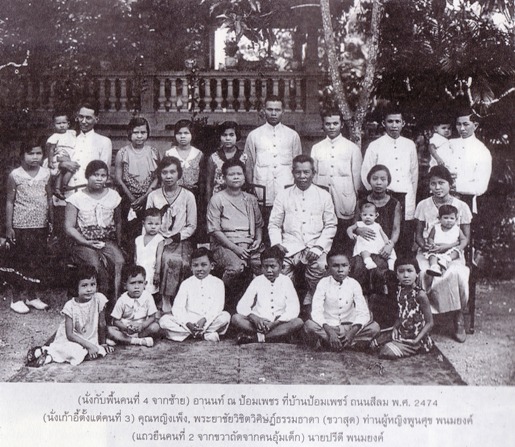
Pridi Banomyong married Poonsuk Na Pombejra on 16 November 1928. Poonsuk, who was twelve years younger than Pridi, was the daughter of Maha Ammattri Phraya Chaiwichitwisitthammada and Khunying Peng Chaiwichitwisitthammada (née Suwannasorn). The couple had six children: Lalita, Pal, Suda, Sukprida, Dusadee, and Wanee. Poonsuk provided crucial personal support throughout Pridi's challenging political career.
4.2. Cultural Activities and Writings
Before the outbreak of World War II, Pridi anticipated that military dictatorships would ignite a global conflict. In response, he produced the film The King of the White Elephant in 1940. This film was intended to convey his message of peace and opposition to war to international audiences. It clearly articulated his stance through a Buddhist saying featured in the film: "Natthi Santi Param Sukham" (There is no happiness greater than peace). Furthermore, the film aimed to demonstrate that the Siamese people were prepared to fight with dignity against invading forces.
Beyond filmmaking, Pridi was a diligent scholar, actively seeking knowledge across various scientific disciplines, including social sciences. While residing in China, he undertook extensive research, delving deeply into both the theoretical and practical aspects of various fields. He critically examined the works of prominent philosophers and social scientists, including Karl Marx, Friedrich Engels, Vladimir Lenin, Joseph Stalin, and Mao Zedong. He conducted comparative analyses of every aspect of Thai society, covering its economic system, politics, social perspectives, history, ethnicity, religion, customs, and traditions. The insights from these studies were later compiled into numerous articles and books.
5. Legacy and Assessment
Pridi Banomyong's legacy in Thai history is complex and enduring, marked by his profound contributions to democratic development and social progress, as well as politically motivated criticisms and controversies.
5.1. Contributions and Positive Impact
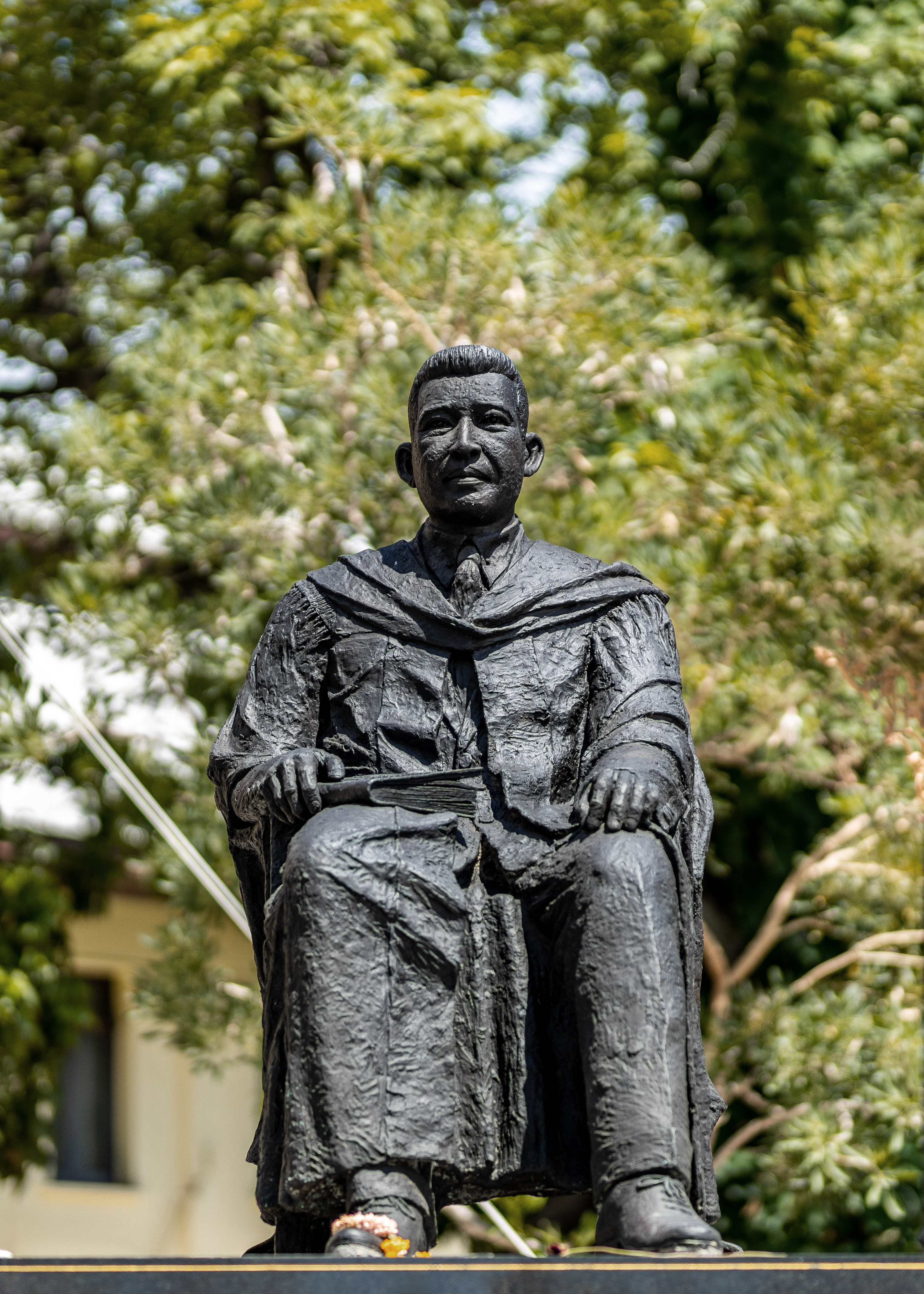
Pridi Banomyong remains a profoundly influential, albeit controversial, figure in modern Thai history. As one of the civilian leaders of the 1932 pro-democracy coup, he is widely regarded as the "Father of Thai Democracy." He is celebrated for his intellectual contributions as the "brain" of the Khana Ratsadon and as a steadfast, idealistic, and progressive politician.
His significant achievements include modernizing Thai legal codes, laying the foundational framework for Thailand's local government system, and successfully negotiating the revocation of unequal treaties with 12 Western nations. This diplomatic feat allowed Thailand to regain full independence in legal jurisdiction and taxation for the first time since the mid-19th century. He also implemented tax reforms and established the Bank of Thailand, centralizing financial authority.
His vision for accessible education led to the founding of Thammasat University in 1934, initially conceived as an "open university" that promoted legal and political education for all citizens. During World War II, as Regent, he covertly led the domestic Free Thai Movement, maintaining vital contact with Allied forces and ensuring that Thailand's wartime declaration of war against the Allies was deemed illegal. This strategic action enabled Thailand to avoid being treated as a defeated nation and spared it from post-war occupation. Lord Louis Mountbatten lauded Pridi for secretly exchanging military plans with an officially enemy state.
Pridi's image evolved from an anti-monarchist democrat to a republican. His standing improved significantly after the failed Bovoradej Rebellion and reached its peak during World War II as leader of the Free Thai Movement and subsequently as prime minister. He became a powerful symbol of resistance against military dictatorships, liberal politics, and Thammasat University. His contributions to national sovereignty and the promotion of democratic ideals are widely recognized.
In 2000, UNESCO included the centenary of Pridi Banomyong's birth in its list of "Great Personalities and Historic Events," honoring his ideals and integrity. The Université Paris (1 Panthéon-Sorbonne) also celebrated his centenary, recognizing him as "one of the great constitutionalists of the twentieth century," drawing comparisons to figures like Rousseau, Montesquieu, and Alexis de Tocqueville. Scholar Sulak Sivaraksa has compared Pridi's importance to that of Mao Zedong of China, Ho Chi Minh of Vietnam, and Jawaharlal Nehru of India, asserting that his efforts to salvage the nation during crisis placed him on par with Thai historical figures like Kings Naresuan and Taksin.
5.2. Criticisms and Controversies
Pridi's career was also marked by significant criticisms and controversies, largely politically motivated. His radical economic plan, the "Yellow Cover Dossier," was fiercely opposed by royalists and conservatives, who accused him of being a communist. This led to his brief exile and contributed to political instability.
The relationship between Pridi and Field Marshal Plaek Phibunsongkhram, initially allies in the Khana Ratsadon, soured as Phibun developed dictatorial tendencies and adopted a pro-Japanese stance, which Pridi strongly opposed due to his anti-Japanese and left-leaning views. During periods of military rule, Pridi was consistently branded as a communist, and several of his writings showing sympathy for Marxist, socialist, and communist ideologies were used against him.
The most damaging accusation against Pridi was his alleged involvement in the mysterious death of King Ananda Mahidol on 9 June 1946. Despite an official commission concluding that the King's death could not have been accidental but was neither conclusively suicide nor murder, Pridi's political opponents swiftly blamed him, going so far as to accuse him of being the mastermind behind an assassination plot and of planning to establish a republic. This accusation severely undermined his public image and was a key pretext for the 1947 Siamese coup d'état that ousted his political allies and led to his permanent exile. Although Pridi consistently denied these allegations and won every libel lawsuit filed against those who propagated such views, the accusations persisted even after his death. Biographer William Stevenson stated that King Bhumibol Adulyadej did not believe Pridi was involved in his brother's death.
Seni Pramoj, another prominent politician, promoted the idea that he had saved Thailand from post-war British colonial rule, which he implied Pridi was willing to accept. Nigel Brailey, a historian, expressed skepticism about the Free Thai Movement, suggesting it was largely a "sham" and casting doubt on Pridi's personal commitment to the Allied cause, arguing that his anti-Japanese stance primarily stemmed from his hostility towards Phibun. However, it is also understood that Pridi recognized that aligning Thailand with the Axis powers would benefit Phibun and solidify his dictatorship, and his hostility was well-known to the Japanese, leading to his removal from the cabinet in December 1941. This also explains why Allied figures, from Seni Pramoj and Prince Suphasawat to former British Ambassador Josiah Crosby, expected Pridi to lead a domestic resistance movement.
5.3. Commemorations and Influence
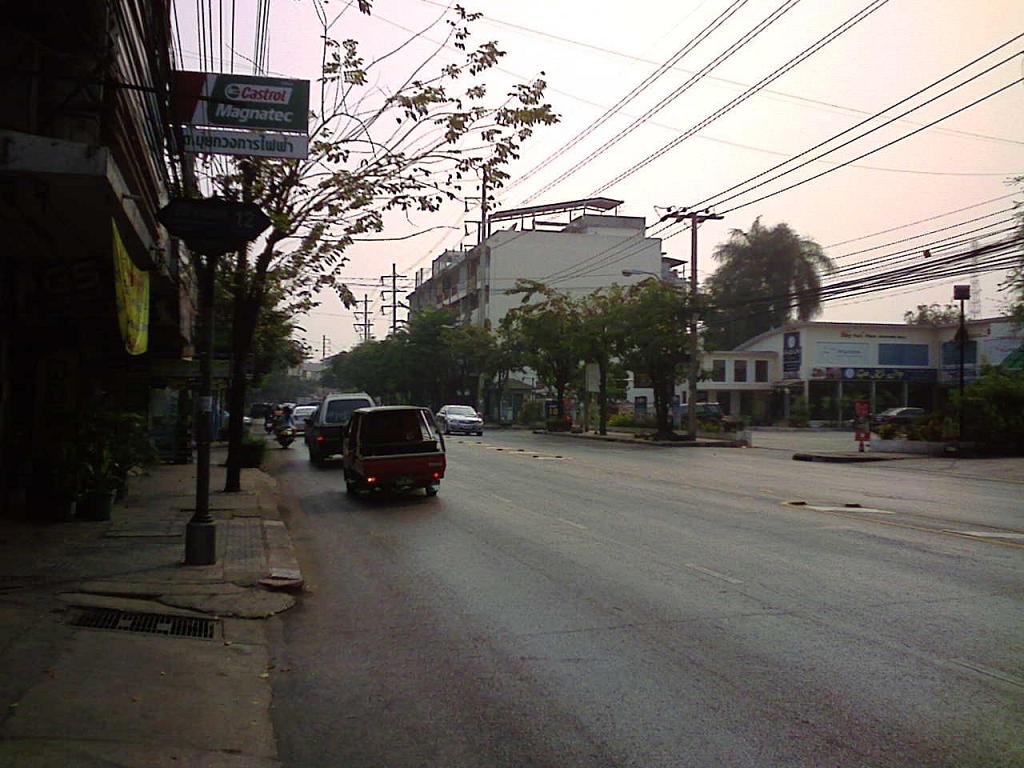
Efforts to rehabilitate Pridi's reputation, notably led by the one-time conservative monarchist Sulak Sivaraksa, achieved significant results. Sulak, an influential critic of the Thai establishment, praised the Free Thai Movement's role in preserving Thailand's sovereignty and criticized Seni and his Democrat Party for their alleged complicity in the military's return to power in 1947.
Today, four streets in Bangkok are named in Pridi's honor: three as Pridi Banomyong Road and one as Praditmanutham Road (his royal title). His birthday, 11 May, is celebrated as Pridi Banomyong Day. In 1997, the Thai government dedicated a park in eastern Bangkok to the Free Thai resistance movement, where a library-museum, a replica of Pridi's wartime residence, opened on 16 August 2003.
On 30 October 1999, UNESCO officially recognized the centenary of Pridi Phanomyong's birth, including it in its calendar of anniversaries of great personalities and historic events, in tribute to his ideals and integrity. This recognition played a crucial role in cleansing his tarnished image.
There are two Pridi Banomyong Memorials: one in his hometown of Ayutthaya, located opposite Wat Phanomyong and featuring a symbolic representation of his ideals of peace, Free Thai, and democracy; and another memorial room in the Dome Building at Thammasat University, the first memorial dedicated to him. Thammasat University also houses the Pridi Banomyong Library, its central library, and the Pridi Banomyong International College, established during his centenary year for international studies. The Faculty of Law at Dhurakij Pundit University is also named the Pridi Banomyong Faculty of Law.
A species of leafbird, Chloropsis aurifrons pridii, discovered in Chiang Dao Wildlife Sanctuary in Chiang Mai, was named "Pridi" in his honor. Another subspecies of blue-winged leafbird found in southern Thailand, Chloropsis cochinchinensis seri-thai, was named "Seri Thai" in honor of the Free Thai Movement. The Pridi Banomyong Institute, a non-profit academic organization, holds an annual Pridi Banomyong Lecture, originally on Pridi Banomyong Day, but recently moved to 24 June to commemorate his role in the 1932 coup.
Other commemorations include:
- Sukhumvit Soi 71 in Bangkok is named Pridi Banomyong Road.
- The Pridi-Thamrong Bridge over the Pasak River in Ayutthaya, a main entrance to Ayutthaya Island, is named after Pridi Banomyong and Thawal Thamrongnawasawat.
- Praditmanutham Road, a 7.5 mile (12 km) road parallel to the Chalong Rat Expressway, also bears his former title.
- A commemorative stamp set celebrating his 111th birth anniversary was issued by Thailand Post on 11 May 2011.
- In 2024, an animation film titled 2475 Dawn of Revolution was produced, featuring Pridi Banomyong as a character, voiced by Sumet Ong-art.
Pridi Banomyong's image symbolizes the enduring struggle between military dictatorship, conservatism, and monarchism versus liberalism and socialism in Thai politics and society. His image has been used to advance political agendas, with military dictatorships portraying him negatively to consolidate their power, while conservatives and royalists sought to preserve the monarchy's role. Conversely, liberal and socialist factions cultivated a positive image of him as a symbol of resistance against authoritarianism. Sulak Sivaraksa also became a key figure in establishing the 100th Birth Anniversary of Professor Dr. Pridi Banomyong Fund, stating that he wanted to atone for having previously misunderstood Pridi. Pridi was also nominated as an "Asian of the Century."
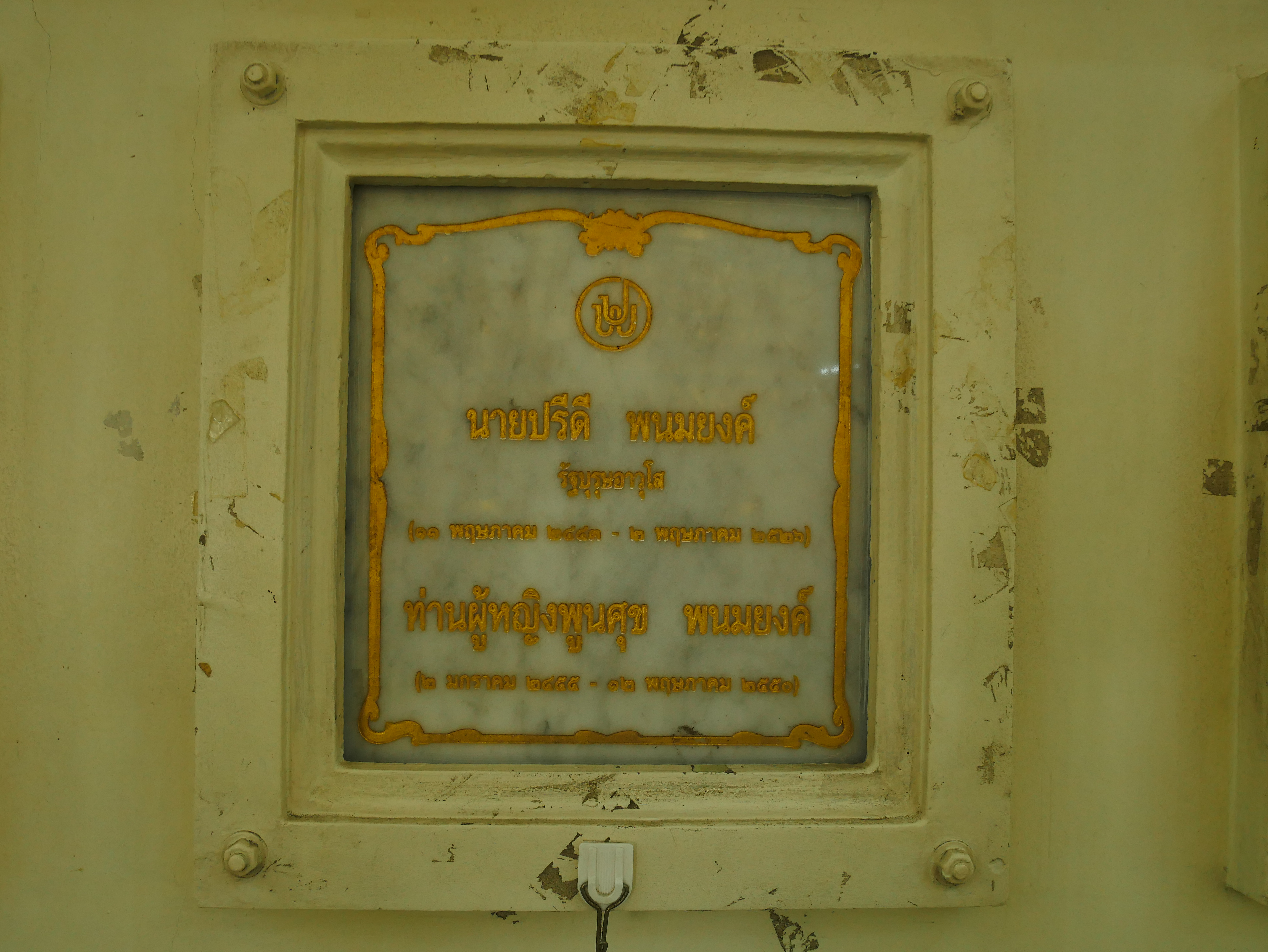
6. Honours and Awards
Pridi Banomyong received numerous academic, civil service, royal, and foreign distinctions throughout his distinguished career.
6.1. Academic and Civil Service Ranks
- Professor of Thammasat University
- Chief of Ministry of Justice of Siam (Ammattri)
6.2. Royal and Noble Titles
- Luang Praditmanutham (หลวงประดิษฐ์มนูธรรมLuang PraditmanuthamThai): granted in 1928, resigned in 1941.
6.3. Thai Royal Decorations
Pridi received the following royal decorations in the Honours System of Thailand:
- 1945: Knight of The Ancient and Auspicious Order of the Nine Gems
- 1945: Knight Grand Cross (First Class) of The Most Illustrious Order of Chula Chom Klao
- 1941: Knight Grand Cordon (Special Class) of the Most Exalted Order of the White Elephant
- 1937: Knight Grand Cordon (Special Class) of The Most Noble Order of the Crown of Thailand
- 1933: Safeguarding the Constitution Medal
- 1939: Dushdi Mala Medal for Services to the Nation
- 1942: Medal for Service Rendered in the Interior (Indochina)
- 1938: King Rama VIII Royal Cypher Medal, 1st Class
6.4. Foreign Decorations
- Order of the Rising Sun, 1st Class (Japan)
- Grand Cross of the Order of the German Eagle (Germany), 1938
- Grand Cross of the Légion d'honneur (France) (also Officer, Academic Palms, 1930)
- Grand Cordon of the Order of Leopold (Belgium)
- Grand Cross of the Order of Saints Maurice and Lazarus (Italy)
- Grand Cross of the Order of St Michael and St George (United Kingdom)
- Medal of Freedom with Gold Palm (United States of America)
- Commander Grand Cross of the Order of Vasa (Sweden), 1947